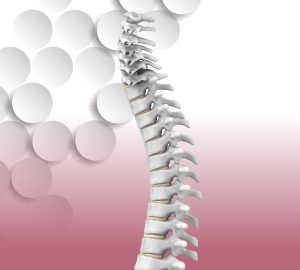Go with your gut—it’s not an uncommon piece of advice, and it may be more pertinent to your overall wellness than you realize. Your gastrointestinal system is home to trillions of microorganisms, known as your gut microbiome. They may be small, but they have a big impact on your body and health.
What is the gut microbiome?
Your gut is its own ecosystem of living microorganisms, including species of bacteria, viruses, fungi and parasites. Everyone’s gut microbiome is unique to them. Infants inherit their first microbes from their mother in the birth canal and through breastfeeding. Later, environmental factors and diet expose people to new microorganisms that can either be beneficial or harmful.
Why is it important?
You have a symbiotic relationship with most of the microbes in your gut. That means it’s mutually beneficial. You provide food and a place to live for the microbiota, and the helpful ones do important work in your body. One of their tasks is keeping more harmful, or pathogenic, microorganisms in check.
What happens when something disrupts the gut microbiome?
In a healthy body, there is a balance between symbiotic and pathogenic microbes. When that balance is disrupted, it’s known as dysbiosis. This occurs when the bad microorganisms start to overwhelm the good or the overall diversity in gut microbiome decreases. Typical symptoms include gas, bloatedness, poor digestion, lower abdominal pain, diarrhea or constipation. In many cases of dysbiosis, the symptoms are mild, and your body can correct the imbalance on its own. Serious cases may require diagnosis and treatment from a medical professional.
Does what I eat have an impact?
Fiber plays an important role in what microorganisms are part of your gut microbiome. Dietary fiber can only be broken down and digested with the assistance of the microbiota living in your colon—without them, you wouldn’t get some essential nutrients. The process creates short-chain fatty acids that lower the pH inside your gut, which favors more beneficial microbes and hinders the growth of harmful ones. Conversely, sugar and saturated fats tend to allow less helpful microorganisms to thrive. Studies suggest that certain animal products like red meat and dairy also promote unhealthier gut species. Certain additives and preservatives found in processed food also may be harmful to your gut microbiome.
What foods should I eat to support a healthy gut?
Research indicates that unprocessed, plant-based foods are most beneficial to your gut microbiome. These include fruits, vegetables, nuts, seeds and whole grains. These foods are sometimes known as prebiotics because they feed the bacteria in your colon. Fish and eggs also have been shown to have a favorable impact on helpful microbes. The unprocessed nature of foods is an important factor. Even if something is completely plant-based, if it is highly processed, it will likely not offer as much support to healthy microbiota.
How does my gut microbiome impact the rest of the body?
Your gut is actually the largest organ in your immune system—it contains around 80% of your body’s immune cells. These help clear out pathogens every day. The short-chain fatty acids created by symbiotic microbes also help by supporting your gut barrier, which keeps bacteria and toxins from escaping into your bloodstream. Your gut microbiome also plays a role in your nervous system because of the gastrointestinal system’s connections to the brain, and certain bacteria actually produce or stimulate the production of neurotransmitters.
What role do probiotics play?
Probiotics naturally contain microbiota—whether coming from food or a supplement. More research is necessary to understand what benefits probiotics have for everyday digestive health, especially in supplement form. However, they may be more useful for children and older adults when the gut microbiome is less robust. Since most probiotics are sold as supplements, they are not regulated by the F.D.A., and companies are not required to disclose information on quality.
Can I get probiotics from food?
Yes, you can find beneficial live microbiota in food. Common probiotic foods include those that are fermented, such as pickled vegetables, yogurt with live active cultures, kombucha, kimchi, miso and sauerkraut.
Sources: Cleveland Clinic, Harvard T.H. Chan School of Public Health








